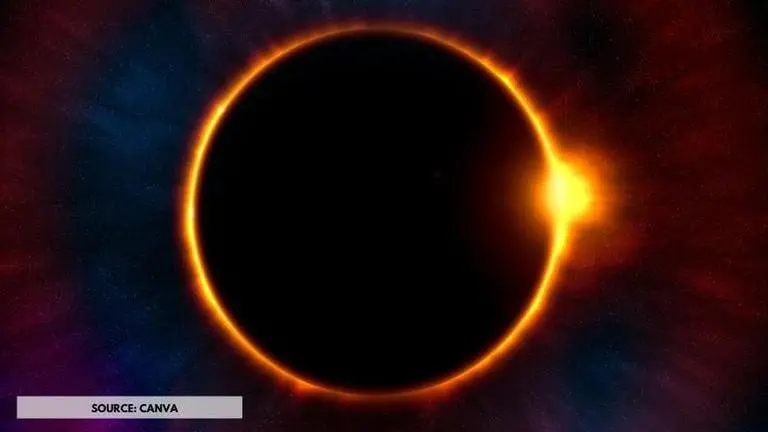Updated 21 June 2020 at 07:00 IST
Can you sleep during solar eclipse? Here are myths around sleep and insomnia
Can we sleep during the solar eclipse? Here are details about the myths surrounding sleeping and insomnia during solar eclipse. Read ahead.
- Science News
- 3 min read

The first solar eclipse of 2020 will fall on June 21. On this day, Asia, Africa, South, and East Europe, Northern Australia, and parts of the Pacific and Indian ocean will experience the deepest annular solar eclipse of the century. During the rare eclipse, the moon will cover the sun from the centre, and the ring of light will be visible in the sky. Read on to know more details about Solar Eclipse June 2020 and whether can we sleep during the solar eclipse and also should you sleep during a solar eclipse:
Solar Eclipse 2020
Solar Eclipse happens as the moon is far away from the earth, making its relative size not big enough to cover the sun entirely. According to reports, the annular solar eclipse June 2020 will begin at 9:15 PM IST and will go on until 3: 04 PM IST. The maximum eclipse will occur at 12: 10 PM IST. In India, some parts of the country will observe a full eclipse, while most of the other parts will get a partial glimpse. Here are details of whether one can sleep during the solar eclipse and myths related to it.
Can we sleep during the solar eclipse?
In India, people consider an eclipse to be inauspicious according to Hindu mythology. Moreover, reports suggest that they also believe the disappearance of the sun, even for a short span, is unhealthy. Among many things, people often wonder if they can sleep during the solar eclipse. However, it is a myth that says one should not sleep during a solar eclipse. As per a study, solar eclipse causes daytime darkness, which affects the sleep pattern. Although it fails to explain if the reason is psychological or physical, the effect is quite evident.
The study also suggests that there is no direct physical effect of the eclipse, but numerous things occur during the solar eclipse. So, usually, people frown upon someone sleeping during that time. Moreover, there is a belief that pregnant women should not sleep during a lunar or solar eclipse as it can cause harm to the unborn baby. However, there is no scientific evidence that backs the statement. On the other hand, there is no research behind the myth which links eclipse with insomnia. As these superstitions and beliefs have been a part of our lives since generations, it is hard to digest that they might be false.
Advertisement
Advertisement
Solar eclipse timings
The solar eclipse starts at one location and ends at another. So, we have mentioned the solar eclipse timings in India. Check out.
- The first location to see the partial eclipse will begin at 09:15:58
- The first location to see the full eclipse will start at 10:17:45
- The maximum eclipse will occur at 12:10:04
- The Last place to witness full eclipse will end at 14:02:17
- The Last location to see the partial eclipse will end at 15:04:01
An annular solar eclipse will occur on 21 June, 2020 (31 Jyaishtha, 1942 Saka Era).
— PIB India (@PIB_India) June 16, 2020
From India annular phase will be visible in the morning from some places within a narrow corridor of northern part of the country
🌘https://t.co/ChESSdF02s pic.twitter.com/0osnelnDUJ
Also read: Solar Eclipse 2020 To Take Place On June 21 And Will Be Visible From Parts Of North India
Published By : Vageesha Taluja
Published On: 21 June 2020 at 07:00 IST
